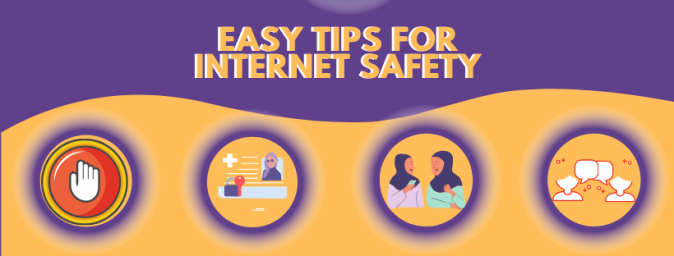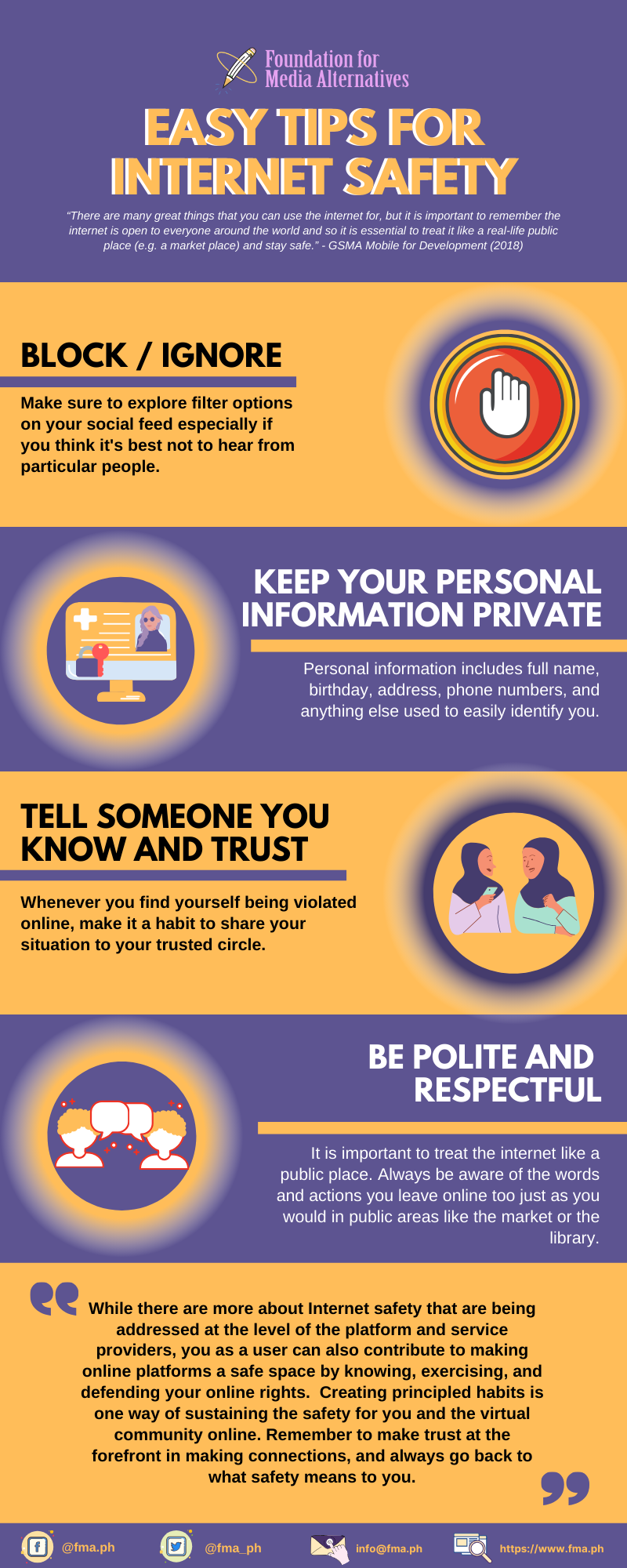Easy Tips for Internet Safety

This piece was originally published by the Foundation for Media Alternatives (FMA). You can also consult their recent analysis, using the TBTT mapping tool, of online gender-based violence in the Philippines in this article.
While the Internet has grown to become a basic need for people to access information, services, and form social connections and communities, it similarly allows for same problems offline to be perpetuated online such as hate and abusive comments, sexual harassment, and other forms of violence. For instance, Facebook, while being the most popular social networking medium, has also attracted a flock of trolls proliferating misleading content and hogging conversations to the point of violent speech and harassment. Gender-based violence also surfaces as predators take advantage of social media platforms to exploit women and the queer community.
This bustle of online activity can be disturbing to many users, a lot of whom can potentially fall prey into the toxic virtual circle. How can you, as a user, distance yourself from such turmoil while still having a meaningful presence online?
Block. Make sure to explore filter options on your social feed especially if you think it’s best not to hear from particular people. Blocking is one of the options that can permanently ward off any interactions someone can possibly initiate on you. It does not notify the person that you blocked them, and they will not be able to message you nor see any of your online activity on the platform. This is best for when you are uncomfortable when a user is badgering you online.
Keep personal information private. Personal information includes full name, birthday, address, phone numbers, and anything else used to easily identify you. While used in putting up the typical user profile on social media, these are the same data usually formulated to form passwords since they are easy to remember (eg. name and birthday combination). However, these same details put you at risk of hacking due to the predictability of your passwords especially when your personal information is easy to find online. When interacting, make sure you also don’t share these information to just anyone be it on chats, via photos or videos. Stay vigilant about what details are being asked of you and why they are needed. Tinker on your privacy settings, keep possible identification details visible only to yourself, and secure how your other information appears publicly.
Tell someone you know and trust. While there are many ways to distance oneself from online harm, sometimes things like weak moderation and slow responsiveness of platforms make it easy for aggressors to disrupt a user’s peace and safety. Whenever you find yourself being violated online, make it a habit to share your situation to your trusted circle. This can help you gain collective vigilance, multiply efforts in tracing the aggressor, and support your act against the abuser especially as strength in numbers raises the issues faster.
Be polite and respectful. It is important to treat the internet like a public place. Always be aware of the words and actions you leave online too just as you would in public areas like the market or the library.
While there are more about Internet safety that are being addressed at the level of the platform and service providers, you as a user can also contribute to making online platforms a safe space by knowing, exercising, and defending your online rights. Creating principled habits is one way of sustaining the safety for you and the virtual community online. Remember to make trust at the forefront in making connections, and always go back to what safety means to you.

- Log in to post comments
